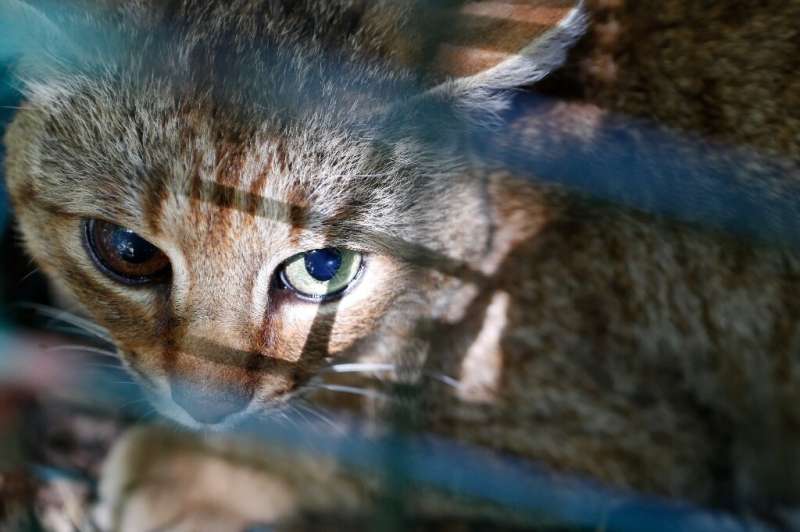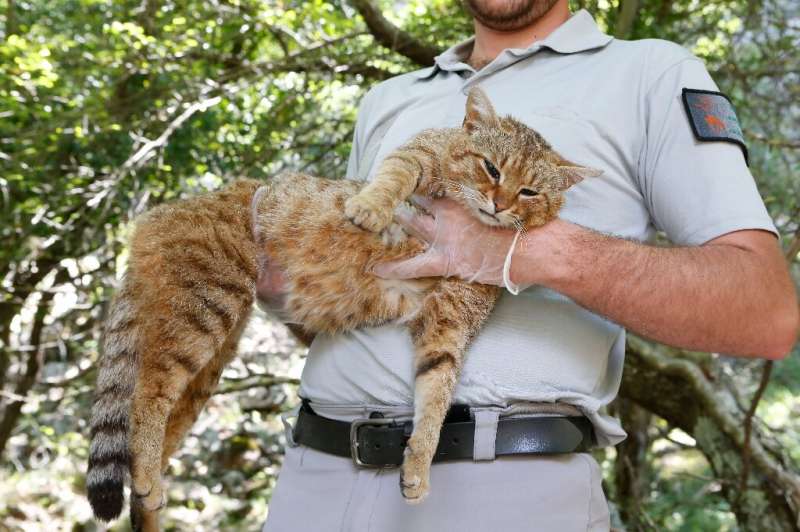New genetic analysis has 'revealed a unique genetic strain to the wild cats' found in the remote forest undergrowth of northern Corsica.
The elusive striped "cat-fox" familiar mostly to Corsican shepherds and as a source of intrigue to scientists, is indeed its own species specific to the French Mediterranean island, the French office for Biodiversity (OFB) announced Thursday.
New genetic analysis has "revealed a unique genetic strain to the wild cats" found in the remote forest undergrowth of northern Corsica, it confirmed.
Genetic sampling clearly distinguishes the ring-tailed Corsican cat-foxes from mainland forest felines and domestic cats, said the OFB in a statement.
While resembling house cats in some ways, the cat-fox earned its name from its length—measuring 90 centimeters (35 inches) from head to tail—and its distinct black-tipped, ringed tail.
Other distinguishing features include the stripes on the front legs, "very dark" hind legs, and a russet stomach. The dense, silky coat is a natural repellent for fleas, ticks and lice.
The inconspicuous feline finally became part of a concerted research effort—after years of playing a game of cat and mouse—when one was unexpectedly captured in a local chicken coop in 2008.
But it has long been part of local folklore.
"The cat-fox is part of our shepherd mythology," Carlu-Antone Cecchini, head of the forest cat mission at the National Hunting and Wildlife Office, now part of the OFB, told AFP in 2019.
Genetic sampling clearly distinguishes the ring-tailed Corsican cat-foxes from mainland forest felines and domestic cats.
"From generation to generation, they told stories of how the forest cats would attack the udders of their ewes and goats."
The discovery of a unique genetic lineage is an essential step towards ensuring proper protection and conservation for the endangered species.
© 2023 AFP

























